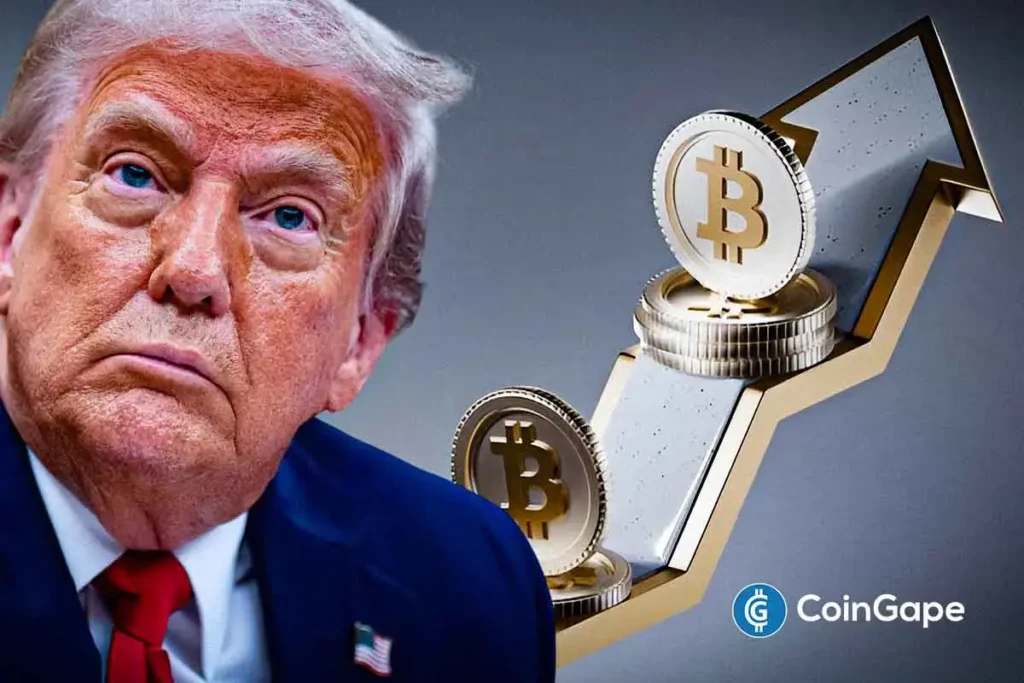Bitcoin ETFs Experience Significant Inflows Amid Tariff Concerns
Recent financial developments have seen a remarkable resurgence in inflows into spot Bitcoin Exchange-Traded Funds (ETFs), despite the overshadowing effects of Donald Trump’s reciprocal tariffs. The data indicates that net inflows across all US-based Bitcoin ETFs reached a striking $220 million, effectively recovering losses sustained earlier in the week. This upward trend suggests that the market has already absorbed the implications of the tariffs while institutional investors view this as an optimal opportunity to capitalize on lower prices. As a result, the renewed interest in Bitcoin ETFs reflects a growing conviction in the cryptocurrency’s resilience.
ETFs Surge Back with Major Players Dominating
Following a lackluster start to the week, Bitcoin ETFs experienced substantial inflows by midweek, recovering from initial setbacks. Notably, Fidelity’s Bitcoin ETF (FBTC) and Ark Invest’s ARK led the charge, attracting inflows of $119 million and $130 million, respectively, as reported by Farside Investors. In contrast, BlackRock’s iShares Bitcoin Trust (IBIT) faced an outflow of over $116 million, indicating a mix of sentiment in the market. This juxtaposition highlights the diverse strategies employed by institutional and retail investors, demonstrating a willingness to buy into Bitcoin, even amidst broader economic uncertainties linked to the tariffs.
Institutional Adoption of Bitcoin on the Rise
The landscape of institutional investment in Bitcoin has evolved significantly, particularly following weeks of price volatility, where Bitcoin fluctuated between the $80,000 and $90,000 range. Recent figures reveal that the top 75 publicly traded companies now collectively hold 696,456 BTC, showcasing a robust institutional presence in the market. In just the past week, eight companies expanded their Bitcoin reserves, contributing an impressive 26,303 BTC to their holdings. This uptick highlights an increasing confidence among institutions in Bitcoin’s long-term viability, with prominent players like Michael Saylor’s corporate strategy and Japan’s Metaplanet actively increasing their Bitcoin positions.
Market Reactions Following Tariff Implementation
Following the implementation of Trump’s reciprocal tariffs, Bitcoin’s price demonstrated notable volatility, plummeting from $88,000 to a low of $81,000. This reaction occurred notwithstanding the strong inflows into spot Bitcoin ETFs, signaling a complex interplay of investor sentiment. Additionally, daily trading volumes spiked by 85%, reaching as high as $54 billion. As per the latest market conditions, Bitcoin is trading at approximately $83,394, accompanied by a market capitalization of $1.65 trillion. This volatility illustrates how external geopolitical factors can impact cryptocurrency pricing, often leading to swift market movements in short timeframes.
Critical Price Levels and Potential Trends
Crypto analysts are closely monitoring Bitcoin’s trading patterns to identify potential price trends moving forward. Notable analyst Ali Martinez has identified a critical trading range for Bitcoin, with pricing oscillating between $86,900 and $84,800. The significance of this range lies in its potential to dictate Bitcoin’s future direction; a breakout in either direction could initiate substantial price movements. The market’s current state underscores the importance of vigilance and adaptability among traders and investors, as they navigate the dynamics of a rapidly changing market environment.
Outlook for Bitcoin and Institutional Investors
As the landscape of Bitcoin investment continues to evolve, the recent surge in ETF inflows and institutional accumulation suggests a resilient long-term outlook for Bitcoin. The blend of renewed institutional interest and strategic positioning amidst market turbulence reflects a growing belief in the digital asset’s intrinsic value. Furthermore, as investors adopt a "buy the news" mentality, they demonstrate a readiness to capitalize on temporary market discrepancies created by external factors. Going forward, those keeping a close watch on Bitcoin’s price movements and ETF dynamics may find promising opportunities amidst fluctuating market sentiment and geopolitical concerns. Those interested in cryptocurrency should consider conducting thorough market research before making investment decisions, as the market remains unpredictable and susceptible to external influences.
















